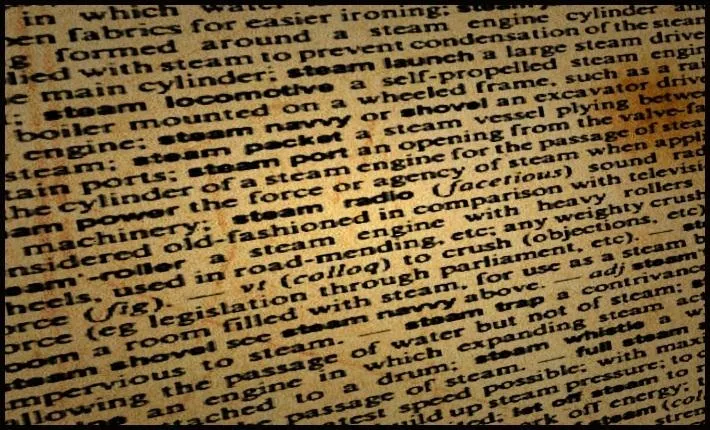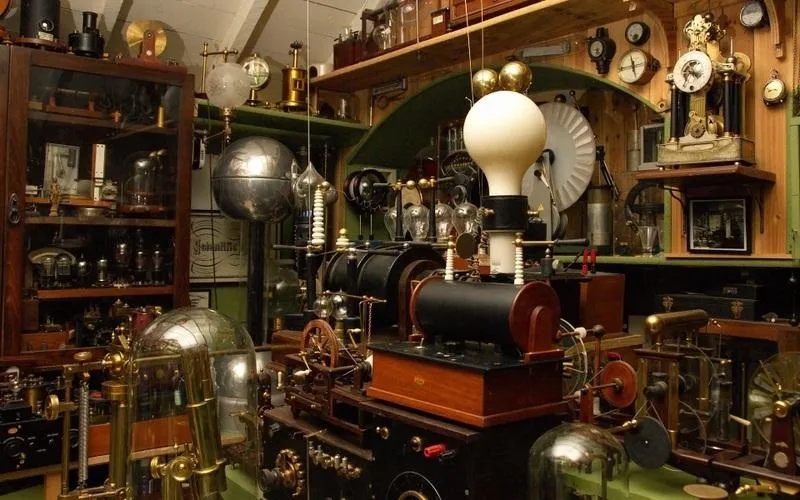I've tried my hand in the past at defining Steampunk, but as anyone else who has made a similar attempt will tell you, there's a significant backlash from the community against working to create a real definition of what Steampunk is.

That may sound ridiculous to some, but it's a very serious matter to others. With the recent announcement that TeslaCon 4 will be called the Congress of Steam, I think it's appropriate to talk about why all of this stuff is worth it. In this article, I'm going to do my best to explain both sides of the issue, and then to show why definitions are both important and misunderstood.
Definitions Constrain Steampunk
Those who argue against creating definitions feel that having actual boundaries on what Steampunk is will stifle creativity and lead to the stagnation and decay of the aesthetic/genre/subculture/etc.
To them, Steampunk is in many ways the very embodiment of creativity and self-expression, so to have someone else tell them how they can and cannot express themselves is extremely galling. That makes perfect sense—who wants to be told how you can dress, or act, or do anything? Not me, that's for sure.
They believe that Steampunk is about having fun, and shouldn't be taken too seriously. It should be open to everyone, and all should be made to feel welcome.
Definitions Explain Steampunk
Those who argue for definitions believe that the boundaries around Steampunk already exist, whether they're named or not. They believe that a working definition will help people outside of Steampunk become easily familiar with it, and that it will help the aesthetic/genre/subculture/etc. grow by being more accessible to new members.
Image from Regretsy
To them, Steampunk is one specific subset of a larger category (either science fiction or alternate history, depending on who you ask) and should be named as such. Without a definition, they argue, the word 'Steampunk' becomes entirely meaningless because it stands for nothing.
Why Define Steampunk?
As you may have noticed, both positions are entirely reasonable, which is exactly the problem. Many controversial issues in the larger world are the same way; not everything has a right/wrong dichotomy.
In this case, however, I believe that the reason why these two positions are at odds with each other is because definitions are fundamentally misunderstood in our society. I don't mean to imply that those who are against definitions are in some way ignorant or at fault; in fact, to the contrary, they're reacting to a larger trend.
That is, the trend throughout history for humans to use any and all means at their disposal to put other humans down. You can ask a psychologist why that happens, but all I can say is that it definitely does happen. One needs go no further than the internet to observe this phenomenon happening en masse, especially in Steampunk.

Image from Wall321
If you haven't heard someone say, "That's too ______ to be Steampunk," or "That's not ______ enough to be Steampunk," then you haven't been to any Steampunk forum on the internet. This is in many ways similar to the current "fake geek girl" syndrome going around, in which both men and women feel the need to "defend" their culture from being usurped by those who haven't "paid their dues", so to speak, or who aren't genuine.
Likewise, with a solid definition in hand, many Steampunks feel that it would lead to a persecution of those who don't fit the ideal Steampunk mold. Given the aforementioned putting-down trend, this is an entirely reasonable fear.
Unfortunately, this fear is often misplaced and is mistakenly taken out on the definitions themselves rather than on those who do the persecution. The people intent on persecuting others will find some way to do this regardless of whether a definition for Steampunk exists or not.

Image of Matt Silva from Geekologie
I suppose you can liken it to gun control, if we're in the market for bad analogies. Guns don't kill people by themselves, but are operated by people intent on killing others. The guns don't go to jail for their complicit role in murdering someone. Likewise, a definition is much like a gun; it isn't harmful by itself, unless used by someone with ill intent. Yeah, I know, I did say that it was a bad analogy. Still, you probably get the idea.
A working definition of Steampunk will not reach across the fandom and deprive someone of fun unless someone else uses it to exclude that person. Personally, I believe that people are too attached to the idea of whether or not they're Steampunk, which speaks to their desire to "fit in". This is almost certainly the result of having been put down in the past, though of course it will vary from person to person. I shouldn't generalize like that.
Still, I've never seen anyone ejected from a Steampunk event for not wearing the proper clothing, and I've seen a lot of odd things at Steampunk events, including non-Steampunk characters from anime, 80's movies, horror films, video games, and even just plain clothes. So considering that all are welcome at Steampunk events and there's no fear of being excluded, why is there such a furor about having a definition?
Frankly, I'm not sure.
However, exclusion is something of a moot point because the role of a definition isn't to constrain, but to explain. Definitions should naturally evolve over time to reflect, not direct. It's much like the rules of grammar to a writer: you should know them, so that you can break them on purpose to create a specific effect. Also, I'm sure I can come up with more rhymes if you give me time.
So, to summarize:
- We should have a working definition of Steampunk.
- That definition should constantly evolve as Steampunk evolves.
- It should not be used to exclude anyone from communities or events.
- People should feel free to press the boundaries of that definition.
I think that about covers it!

















Comments
Be the first, drop a comment!